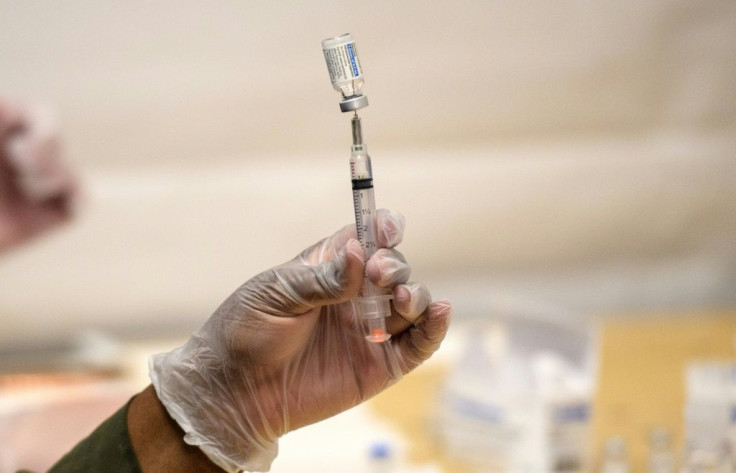Mixing COVID-19 Vaccines Result In More Symptoms, Study Finds
KEY POINTS
- Mixing dosing schedules could lead to "more frequent mild to moderate reactions"
- Researchers say adverse reactions were short-lived, did not pose any danger
- Experts assessing whether paracetamol reduces the frequency of reactions
A recent study has found that alternating doses of the Oxford-AstraZeneca and Pfizer-BioNTech COVID-19 vaccines could result in more symptoms.
According to experts, preliminary data from the University of Oxford-led Com-COV study (launched earlier this year), suggests that mixing dosing schedules of COVID-19 vaccines could lead to more frequent mild to moderate reactions.
In the peer-reviewed research letter published in the Lancet, the researchers state that "mixed" schedules (Pfizer followed by AstraZeneca vaccine, and AstraZeneca followed by Pfizer), bring about more symptoms compared to "standard" ones or schedules that were "non-mixed."
Doses were administered at a four-week interval, Eurekalert reported. The researchers also noted that any adverse reactions brought about by the mixed-doses schedules were short-lived and did not pose any danger.
"Whilst this is a secondary part of what we are trying to explore through these studies, it is important that we inform people about these data, especially as these mixed-doses schedules are being considered in several countries," said Matthew Snape, Associate Professor in Paediatrics and Vaccinology at the University of Oxford, and Chief Investigator on the trial.
"The results from this study suggest that mixed dose schedules could result in an increase in work absences the day after immunization, and this is important to consider when planning immunization of health care workers," he added.
While there is not enough data to conclude the effects of the "mixed" schedules on the body's immune response, Snape said they hope to get more answers soon.
He added that the "good thing" is that alternating doses between Pfizer and AstraZeneca's vaccines have not posed any safety concerns to date and that the experts are currently looking into the effectiveness of paracetamol in alleviating reactions.
"... We hope to report these data in the coming months," Snape added.
The researchers also noted that as the study data was recorded in participants aged 50 and above, there is a possibility such reactions may be more prevalent in younger age groups.

© Copyright IBTimes 2025. All rights reserved.





















